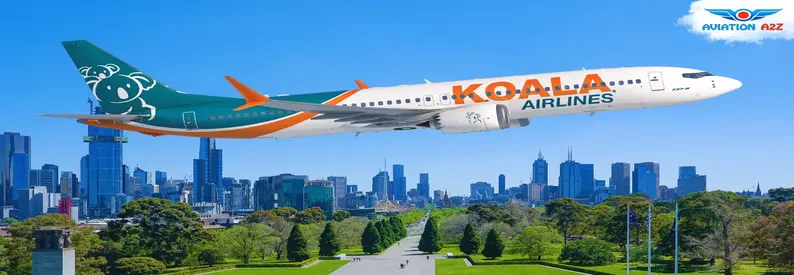Koala Airlines Aims to Break Australia’s Aviation Duopoly with Innovative Strategy

Australia’s commercial aviation sector has long been a challenging environment for new entrants, often described as an “airline graveyard” due to the numerous carriers that have tried and failed to break into a market dominated by just two major players: Qantas and Virgin Australia. The history of Australian aviation is littered with the remnants of airlines like Compass, Impulse, Ozjet, Strategic Airlines, and even the once-mighty Ansett Australia. In 2024, both Bonza and Rex Airlines also exited the market, unable to sustain operations against their larger competitors.
Despite this daunting history, a new airline, Koala Airlines, is stepping up to challenge the established duopoly. Based in Melbourne, Koala Airlines is positioning itself as a fresh contender with a strategy that promises to “fundamentally differ from previous entrants” in the domestic market. The airline plans to operate Boeing 737 MAX 8 aircraft, a move that sets it apart from other failed low-cost carriers that focused solely on price competition.
Koala Airlines is not starting from scratch; it has already established a full management team, launched a website, and, most notably, secured an Air Operators Certificate (AOC). This AOC, inherited from Desert Air Safaris, a historic Australian airline known for offering air tours and charter flights, is expected to serve as a critical springboard for Koala’s operations. Desert Air Safaris, founded in 1970 by Dick and Helen Lang, was a pioneer in air tours across Australia, Papua New Guinea, and the Pacific Islands. Koala Airlines intends to honor this legacy while carving out its own niche in the competitive Australian aviation market.
The Australian government’s Two Airline Policy, introduced in 1952, initially limited the market to two carriers operating between state capitals and major regional centers. Although this policy was relaxed in 1990, allowing more competition, most new entrants struggled to survive against the dominant players. Koala Airlines, however, aims to avoid the pitfalls that led to the downfall of previous competitors. Instead of engaging in unsustainable price wars, the airline plans to innovate and offer a unique value proposition that complements the existing market rather than disrupting it.
Bill Astling, Koala Airlines’ CEO, brings over 45 years of experience in aviation and tourism to the table. His extensive background in airline management, restructuring, and operations across the Asia-Pacific region, including roles with major carriers like Singapore Airlines, Air India, and Malaysian Airlines, positions him as a capable leader for this ambitious venture. Astling’s vision for Koala Airlines includes creating a sustainable business model that prioritizes customer experience and operational excellence.
As Koala Airlines finalizes negotiations to acquire its fleet, the industry watches closely to see if this new entrant can succeed where so many others have failed. With its innovative approach and experienced leadership, Koala Airlines may have a fighting chance to thrive in a market that has proven nearly impossible for others. Only time will tell if Koala Airlines can overcome the odds and establish itself as a viable competitor in Australia’s challenging aviation landscape.
